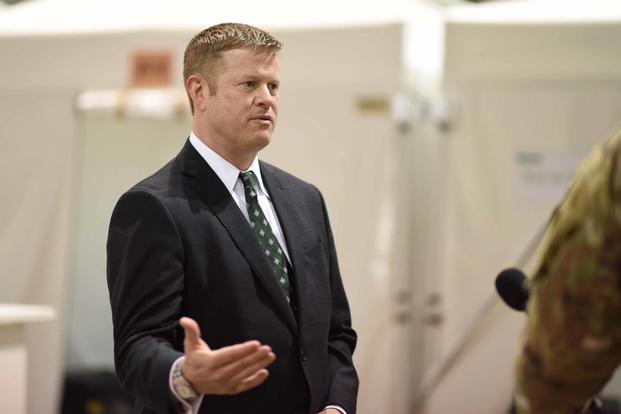Army Secretary Ryan McCarthy sidestepped questions Wednesday on when and how the pullout of 9,500 U.S. troops from Germany ordered by President Donald Trump will begin and where those troops will go.
"We are in the process of looking into" ways of carrying out the order that would not weaken the NATO alliance, McCarthy said from Germany in a conference call with defense reporters. He had been taking part in discussions in Poland, Britain and Belgium.
Read next: An Airman Died After His Chute Opened While He Was Still in the Plane, Says New Report
McCarthy declined to give details on how the Army will go about complying with Trump's directive to reduce the number of U.S. troops in Germany from 34,500 to about 25,000, saying some specifics might be released in the coming weeks.
In general terms, Pentagon officials said June 30 that Trump had signed off on a withdrawal plan presented to him by Defense Secretary Mark Esper and Joint Chiefs Chairman Gen. Mark Milley, but McCarthy said he could not discuss whether troops withdrawn from Germany would be sent to Poland.
"With respect to the repositioning of forces, we are in the process of looking at the mechanics of how to do that and to where" the troops would go, he said.
"I'm not going to get out in front of my boss on this one," McCarthy said in reference to Esper. "I'm not involved in macro-level decisions."
In a June 24 White House meeting with Polish President Andrzej Duda, Trump said that some of the U.S. troops withdrawn from Germany would be repositioned to Poland.
"Some will be coming home, and some will be going to other places," he said. "Poland would be one of those other places."
The withdrawal plan has drawn opposition in the House and Senate, including from close allies of the president, such as Sen. Lindsey Graham, R-South Carolina, who joined in an amendment to the National Defense Authorization Act that would limit the use of funds for the withdrawal.
In backing the amendment offered June 29, Sen. Mitt Romney, R-Utah, said, "The withdrawal of U.S. troops from Germany would be a gift to Russia, and that's the last thing we should be doing."
-- Richard Sisk can be reached at Richard.Sisk@Military.com.
Related: Yankee Go Home: What Does Moving Troops out of Germany Mean?















